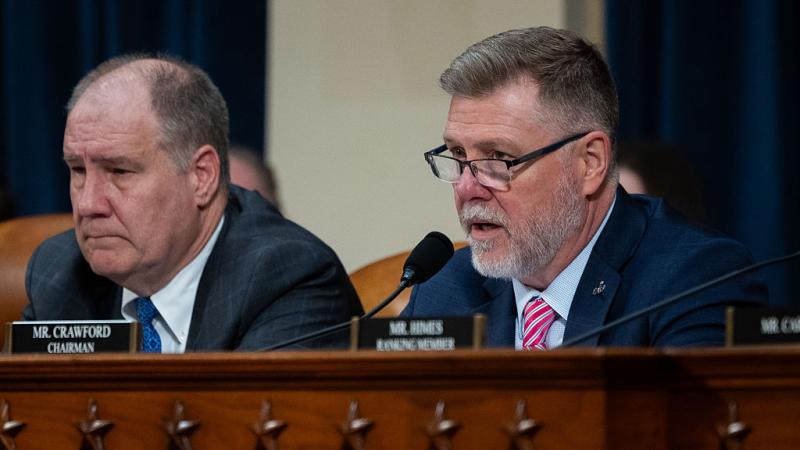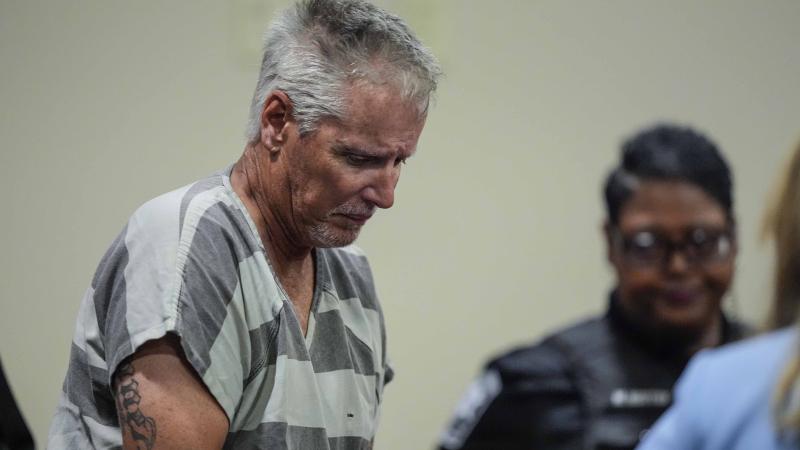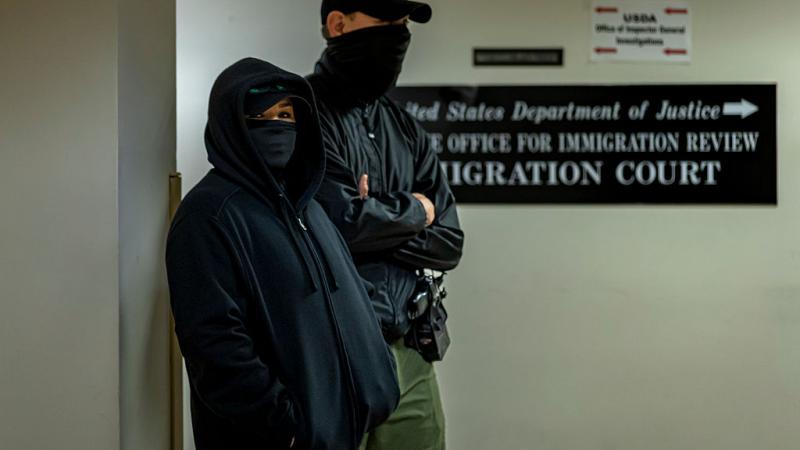Student faces suspension for background image of Trump on Zoom virtual classroom call
Some students felt "offended, disrespected, and taunted" by the Trump imagery, according to a Code of Conduct Complaint report filed by the university's director of care and community standards.
A Stockton University student is facing suspension after he included an image of President Trump on a Zoom conference call.
A representative from the Foundation for Individual Rights in Education (FIRE) says the episode is part of a "depressing" trend of university students being punished for politically charged social media posts.
Doctoral student Robert Dailyda featured the Trump image as his screen background during a July 1 virtual class session. Several fellow students enrolled at the New Jersey college complained about the visuals in a private GroupMe conversation following the session.
The doctoral student also shared a post on Facebook criticizing Black Lives Matter and saying he'd fight to the death to preserve the United States, a la Patrick Henry.
The combination of events sparked a July 22 Code of Conduct Complaint about the "bias incident" filed by the university's director of care and community standards. Some students felt "offended, disrespected, and taunted" by the Trump imagery, according to the complaint report, which did not identify the complaining students. The unnamed students added that the Facebook post in question smacked of racism and potential violence.
Zach Greenberg, a FIRE program officer and author of a letter to Stockton President Harvey Kesselman defending Dailyda, says university administrators asked "intrusive" political questions of the student during a July 10 interrogation.
Dailyda faced six charges, according to FIRE, including cyber bullying, disruptive behavior, discrimination, harassment and creating a hostile environment. The University dropped five of the six charges this week, but Dailyda still faces possible suspension.
A university spokeswoman said Dailyda's case remains open and "no disciplinary action has been taken."
"For a university to threaten to derail his academic career is really antithetical to the university's mission statement," says Greenberg, whose group defends the "individual rights of students and faculty members at America's colleges and universities."
"This is quintessential political speech meriting the highest level of protection," he adds.
Greenberg says no university faculty or officials, to his knowledge, have rallied to Dailyda's side during the imbroglio.
School officials have "created a deeply embedded and systematic environment that squelches the free speech of those who disagree with their radical agenda," said Dailyda in a statement.
Dailyda isn't the only student risking punishment for his conservative views. Marquette University's Samantha Pfefferle, set to start her freshman year this fall, told The College Fix in June that her TikTok video supporting President Trump nearly derailed her college dreams.
The social media clip generated online hate and, much worse, death threats, according to Politifact. An Instagram user saw the video and started an online effort to reverse her Marquette University acceptance, scouring other aspects of her social media profile in the process.
"Marquette received hundreds of emails, social media messages and formal bias-incident reports from current students, alumni and others regarding the incoming student's social media posts and her comments on social media, which some deemed to be 'transphobic and racist' language," university spokeswoman Lynn Griffith told PolitiFact Wisconsin in an email.
The university's dean of admissions, Brian Troyer, met with Pfefferle via Zoom.
Pfefferle later told radio host Todd Starnes the university gave her "morality tests" to see how she'd engage fellow students of various backgrounds. That conversation, she added, involved social media posts she had written three years ago when she was 15.
She is expected to attend the university this fall after her story gained online media attention.
FIRE is seeing an increase in "rescinded admissions" in recent months, says Greenberg, who suspects this is due to the tense political atmosphere surrounding the 2020 presidential campaign, as well as the fallout from protests over the death of George Floyd in Minneapolis. Students increasingly share their political views on social media and, as a result, face consequences for their opinions. The "problematic" comments cross political lines, Greenberg notes.
The universities in question, Greenberg says, give a variety of justifications for their actions, including fear of "hate speech."
Free speech cases tied to President Trump get plenty of attention, though. In 2018, an Oregon high school student settled a lawsuit after his pro-border-wall T-shirt sparked an uproar at his school. Officials asked him to remove the Trump-friendly shirt or leave the premises. He chose the latter and later sued.
The school eventually paid Addison Barnes $25,000 for legal fees, and the school's principal wrote a formal apology for the incident.
"I brought this case to stand up for myself and other students who might be afraid to express their right-of-center views," Barnes said in a statement.
One prominent university warns that even doing nothing can also lead to punishment. Syracuse University is mulling a new rule where students who refuse to interrupt "bias-motivated" incidents could face unspecified consequences.
















